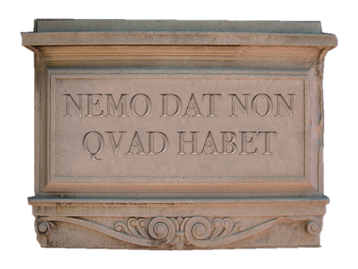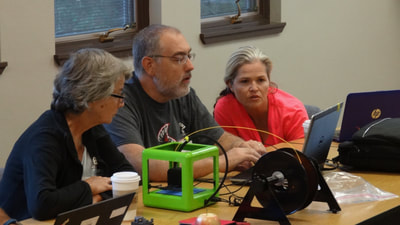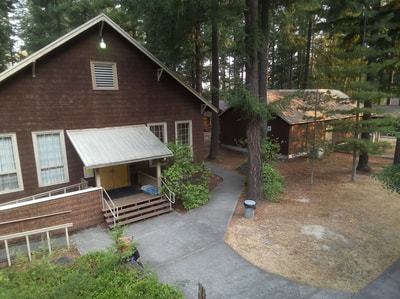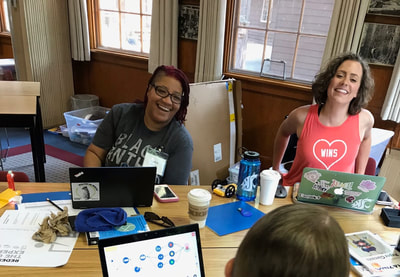 For most educators, September is the crazy-busiest month of the year. For someone involved in professional development, though, it's down time. After go full-out for the latter part of July and all through August, the busy training season shuts down the day school starts. September for me is like summer break, only with a lot less sunscreen. And more sweaters. It's given me some time to reflect on our summer projects, and in particular the second summer of Maker Camps that Caitlin and I hosted for NCCE at the wonderful Pack Forest Conference Center in Eatonville. We held two sessions, with an introductory camp on August 7 & 8, and a camp for more experience participants on August 9 & 10. About fifty educators participated, with a sizable number signing up for the two camps back-to-back. Fourteen amazing instructors offered a range of sessions (here and here), including topics as diverse as design thinking, programming microcontrollers (such as Arduino and BBC Micro:Bit), 3D printing, connecting Making to the NGSS standards, and Making with simple materials. We also held extended evening “open labs,” where participants could spend time exploring and working with whichever tool, materials, or software they wanted. It was four busy, exciting days of activity. A camp setting can provide a different kind of professional development than educators can normally experience. Where many conferences or institute can often be a dizzying series of shorter sessions, we worked to give teachers the opportunity to spend a significant amount of time working in the same mode that their students should. Making should engage learners in extended, focused exploration work with significant amounts of self-direction and agency. Put another way, if there’s no play, it’s not Making. (The NCCE conference does a lot of this, too!) There’s a Latin phrase* that sums up the philosophy of our camps: Nemo dat non quad habet. It translates “You can’t provide what you don’t have.” Teachers can’t provide what they don’t have, either. Professional development experiences should reflect what the students will experience. Imagine an ideal classroom, where students are enthusiastically engaged in focused, challenging work that stretches their skills, knowledge, and creativity. They’re so self-directed that the teacher can just quietly circulate and provide assistance and advice on an as-needed basis. If that’s what we want in a classroom, that’s what the professional development should look like, too. Don’t get me wrong. There are certainly times in both classrooms and professional development where direct instruction is appropriate, and research shows that even good old-fashioned lectures for some situations can be the most effective approach. I do presentations all the time. But it’s also kind of the default, and it can feel deceptively time-efficient because we can cover so much information so quickly. But it’s only efficient if the learners actually learn, and too much content is just the same as too little. It simply won’t stick for most students. And direct instruction is never a good way to teach skills if we don’t give ample time (hopefully with the instructor present) to practice. So that’s why we design our camp that way, as well as other trainings we’ve done. Plus, it’s kind of a dirty little secret, but I long ago discovered that it’s much, much easier to prepare and teach an engaging six-hour project-based workshop than a 50-minute conference presentation. And I feel like the participants come away with a far greater likelihood of applying what they learned than if I had lectured to them for the same amount of time. And as the instructors, we always learn a lot more that way, too! Interested in participating in our camps next summer or want updates on any upcoming workshops? Sign up for our newsletter! It will only be published every month or two, because you don't need more email, and we're not that talkative. *The real legal meaning of the term is written up here. But I’m still going to use it my way.
2 Comments
12/7/2019 04:32:31 am
I am interested to be part of your upcoming workshops! I know that you have a lot in store with you, that's why I am looking forward to be part of it. Your title was catchy that's why I opened this article. Just like in love, you can never love other people wholeheartedly if you cannot love yourself! That's why self-love is important and it has to start from you. If you will do that, I am sure that you will be able to live a happier life instead. I am looking forward for what you can offer to me!
Reply
Leave a Reply. |
Archives
October 2019
Categories
|
Proudly powered by Weebly




 RSS Feed
RSS Feed